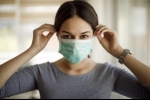Home » Blog
| Stem Cell, PRP, Acupuncture in Queens & Long Island, New York
Blog | Stem Cell, PRP, Acupuncture in Queens & Long Island, New York
We know that a person can spread COVID-19 to other people even before symptoms develop, but what about the flu? When is the flu most contagious? Like COVID, you can spread the flu to other people before symptoms appear. Most people begin to be contagious 1 day before they start feeling sick, and continue to be for 5 to 7 more days (young children and those with weakened immune symptoms may be contagious for even longer). You may be most contagious during the first 3-4 days of illness because that’s when you’re coughing and sneezing the most
Read more
Neck strains and sprains can range from mild discomfort to severe neck pain that hinders routine activities, like driving or getting dressed. Here’s how these soft tissue injuries can happen, and how to get relief. Soft Tissue Injuries in The Neck - There are numerous soft tissues that attach to the neck, including muscles, tendons, and ligaments. These soft tissues all work in tandem to support your neck and head. At the same time, they also enable movement in your neck. A neck strain or sprain occurs when one or more of these soft tissues is stretched beyond its normal range (or is injured in another way).
Read more
What Are Neck Spasms? A spasm is an involuntary tightening of muscle in your body. It often causes intense pain. This pain can last for minutes, hours, or days after the muscle relaxes and the spasm subsides. Spasms can happen in any part of your body where there’s a muscle, including your neck.
Read more
Coronavirus disease (COVID-19) is an infectious disease caused by a newly discovered coronavirus. Most people infected with the COVID-19 virus will experience mild to moderate respiratory illness and recover without requiring special treatment. Older people and those with underlying medical problems like cardiovascular disease, diabetes, chronic respiratory disease, and cancer are more likely to develop serious illnesses.
Read more
For many people living with chronic neck pain, common treatments such as medications, ice, or heating pads do not always provide enough relief. Finding the best combination of treatments for your neck pain may take some trial and error. Here are some lesser-known tips for managing neck pain that you might want to consider.
Read more
What Causes the Flu? The flu is a virus that’s spread in several ways. First, you can contract the virus from a person near you who has the flu and sneezes, coughs, or talks. The virus can also live on inanimate objects for 2 to 8 hours. If someone with the virus touched a common surface, like a door handle or a keyboard, and you touch the same surface, you could get the virus. Once you have the virus on your hand, it can enter your body if you touch your mouth, eyes, or nose.
Read more
Is Wearing Two Masks Better Than One? As more and more people have adopted mask-wearing to reduce the spread of coronavirus, you may have noticed some people doubling up on masks. Is wearing two masks better than one? IT DEPENDS. If you’ve managed to obtain an N95 or an actual surgical mask (not the “medical looking” masks you can buy at the store), then putting another layer over the top probably doesn’t do much good. These health care masks are made of tightly woven materials specifically designed to prevent viral particles from penetrating, so they probably don’t need any extra help.
Read more
When you feel pain, it is due to certain chemical and electric signals that are exchanged between the site of injury and the brain. These signals are carried through your nerves. Neuropathic pain occurs when there is an injury or damage to a single nerve or group of nerves. Neuropathic pain differs from the more commonly understood nociceptive pain. Neuropathic pain occurs due to inflammation, irritation, or compression of the neural tissue. Nociceptive pain is the body’s response to painful stimuli, such as a pulled back muscle or broken bone, and does not relate to an injury of the nerve itself.
Read more
Most cases of the flu are mild enough that you can treat yourself at home without prescription medications. It’s important you stay home and avoid contact with other people when you first notice flu symptoms. You should also: Drink plenty of fluids. This includes water, soup, and low-sugar flavored drinks. Treat symptoms such as headache and fever with OTC medications. Wash your hands to prevent spreading the virus to other surfaces or to other people in your house. Cover your coughs and sneezes with tissues. Immediately dispose of those tissues. Wear a face covering when in public.
Read more
We’ve all seen them: The people who wear a mask over their mouth only, leaving their nose uncovered. And maybe you wondered if that was OK - No, it’s not. Here’s why it’s important to cover your nose with a mask, as well as your mouth. The SARS-CoV-2 virus lives in people’s nasal passages. When an infected person exhales, they release viral particles from their nose into the air. (And notice we’re talking about a basic exhale, not a cough or sneeze. Even the simple act of breathing releases particles.) A mask -- worn over the mouth and nose helps to keep these infectious particles from becoming airborne and reaching others.
Read more
Love this Post? Spread the World






















